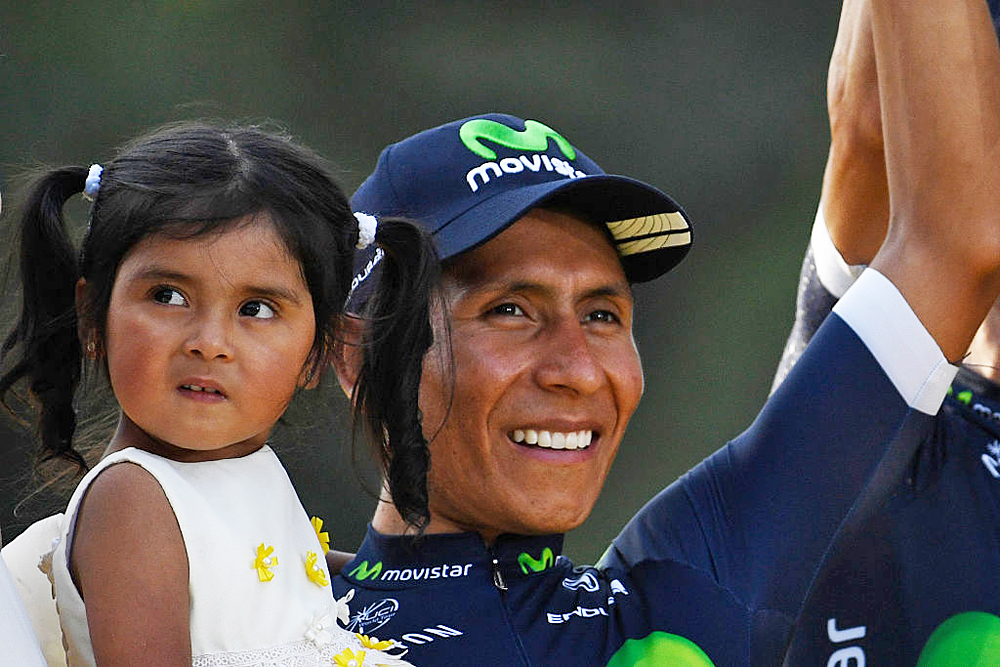Quintana working to fight spousal abuse and advocating gender equity in Colombia
Vue🧜lta winner inspired by wife and dau𓆏ghter to promote feminism





When he leaves Europe, Vuelta a España winner Nairo Quintana (Movistar) heads home to a region in Colombiꦯa that has some of the worst s𒈔tatistics of spousal abuse of women, and he is hoping to parlay some of his fame into creating change.
According to statistics from the Council for the Equality of👍 Women in Colombia, a woman is killed by her partner there every 2.5 days, and four women are victims of violence every hour.
A vocal supporter of the 168澳洲5最新开奖结果:fight against social inequality in Colombia, Quintana has joined with the Mayor of Tunja, the capital of his home department of Boyacá in an initiative called "Enrédate con la equidad de género" (Get involved with gender equi🎃ty).
"The campaign aims to make women more valued, we want them to fee🍰l more protected (...) and that has made it so that the rates [of violence] are going dow🔯n more and more," Quintana said to BBC.com.
Quintana says he feels that part of the problem stems from the count🌱ry's culture of m🍬achismo, and he wants to show other men that they can value women as equals and share in the responsibilities of the household.
Part of his inspiration comes from his new daughter, Mariana, and his wife Yeimi Paola Hernán🐟dez, who might not have the same opportunities that he 🅺enjoys simply because of their gender.
"Men are also able to take care of children. It's important to learn how to change diapers," he says🥃, adding he was eager to learn everything about how to care for his daughter.
The latest race content, interviews, features, reviews and expert buying guides,꧃ direct to your inb𒁃ox!
"When we are going to go out, we realize that we take everything we need so that we aren't staying away from home without milk or without diapers. In fact, taking some medicine in case𓂃 she gets sick on the road. All that makes you get into the role."
Quintana also does not want to limit w൩🎐hat his daughter can do just because of traditional gender norms.
"Fo✱r example, imagine, some people say: 'A girl with a bicycle? No!' or, 'A fema💃le footballer? No!'
"Girls are going to play with girls and on the bike they are going to ride with other women. I hope that my girl makes thꦚe decision [to ride], and I am certainly going to support her. I don't know if she is going to be a cyclist but in whatever she does, I will certainly support her."
